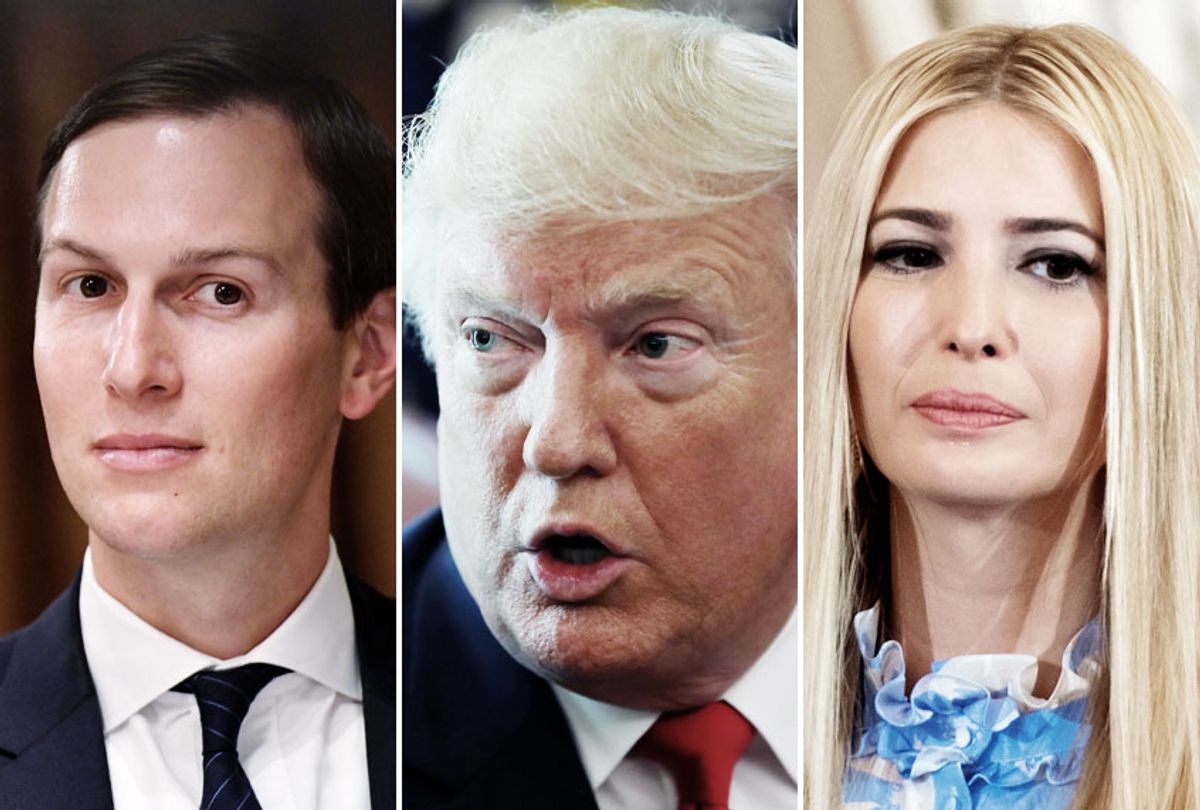A new report draws attention to a controversial mine in Minnesota, raising questions as to whether a potential conflict of interest could have paved the way for its construction.
A conglomerate owned by Chilean billionaire Andrónico Luksic purchased a $5.5 million house in Washington shortly before President Donald Trump assumed office, according to the New York Times. The home was then rented to Jared Kushner and Ivanka Trump, respectively the new president's son-in-law and daughter, raising questions about whether a potential conflict of interest arose for the new administration in regards to policy pertaining to Antofagasta, the conglomerate controlled by Luksic.
“There may be nothing wrong,” Arthur Andrew Lopez, a former ethics official for the federal government, told the Times. “But it doesn’t look good.”
While there is indeed no evidence a quid pro quo arrangement was made, it is known that the Trump administration reversed course on a position taken by former President Barack Obama's administration regarding the construction of a copper mine in Minnesota. Environmentalists were concerned that the proposed mine would cause ecological damage to the Boundary Waters, a cluster of federally-protected lakes and adjacent wilderness that lines the Minnesota-Canada border. As the Times reported:
Executives with the mining company, Antofagasta, discussed the project with senior administration officials, including the White House’s top energy adviser, the emails show. Even before an interior secretary was appointed to the new administration, the department moved to re-examine leases critical to the mine, eventually restoring those that the Obama administration had declined to renew. And the Forest Service called off an environmental review that could have restricted mining, even though the agriculture secretary had told Congress that the review would proceed.
An Interior Department spokesman said it simply worked to rectify “a flawed decision rushed out the door” before Mr. Trump took office. Several senior department officials with previous administrations, however, said they were surprised by the swift change of course for the little-known Minnesota project, which was not a focal point of Mr. Trump’s presidential campaign.
On the one hand, it is entirely possible that the Trump administration is once again prioritizing business over the environment. Regarding the Trump administration's instruction to the EPA to use a new method for projecting the future health risks of air pollution, acclaimed Penn State climatologist Michael E. Mann told Salon by email last month that “this is a logical next step in the effort by Trump and the polluting interests that dictate his environmental policies to dismantle the environmental protections of the past half century put in place by past both Republican and Democratic presidents."
He added, "Let me be blunt: Trump is choosing to kill people in order to increase the profits of the polluting interests to which he is beholden. I cannot think of a more craven act than this, and we’re talking about a president who is known for craven acts. There is a reason I warned back in October 2016 that Trump is a threat to the planet."
At the same time, there have been a number of allegations that the president, who has never fully divested himself from his business empire, possess conflicts of interest and could be misusing his executive power in an attempt to enrich himself.
"Congress must be vigilant against the potential for President Trump to enrich himself and his family at the expense of the average American. The president and his family’s conflicts of interests are inexcusable and unacceptable, and could depress economic output by over $1,000 per person just in one year. Not only are these practices dangerous, but harmful to the economic security of American families across the country," Sen. Martin Heinrich, D- N.M., said in a 2017 report on how Trump's alleged corruption hurts the economy.
Heinrich also told Salon, "The purpose of this report is to highlight the real economic impacts of President Trump’s conflicts of interest, and the harm some of his business interests and financial conflicts could cause. The stakes are high and the risks are real. It’s not just about how the president, his family, and his administration benefit from these conflicts of interest—but how they could hinder economic growth in the long term."



Shares